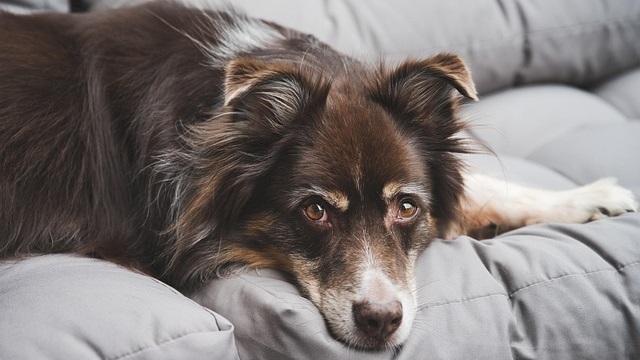Is Your Dog Restless at Night? What Their Activity Levels Reveal
As a pet parent, few things are more unsettling than hearing your dog pace, pant, or whine in the middle of the night. This behavior can leave you asking: why is my dog not sleeping at night?
It’s a question with many potential answers, and understanding the root cause is the first step toward helping your dog—and you—get a peaceful night’s sleep. While a single restless night might be nothing to worry about, persistent patterns of disrupted sleep can be a signal that something more is going on.
Let’s dive into the matter.
Key Takeaways
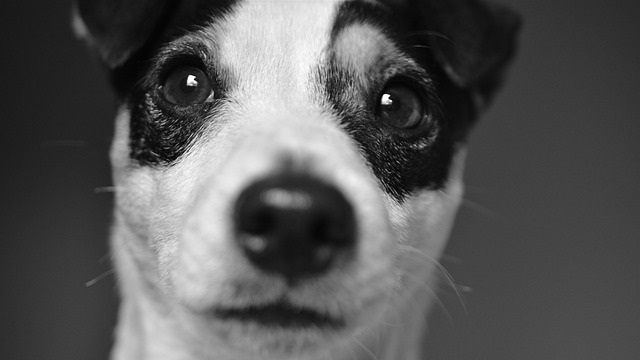
- Nighttime restlessness is often a sign of an underlying issue, not just an annoyance. Causes can range from simple behavioral triggers to more serious medical conditions.
- Pacing, whining, and constant position changes are common signs that your dog is uncomfortable or anxious.
- Tracking your dog’s activity over time is crucial. Patterns of disrupted sleep, especially those that appear gradually, can be an early indicator of pain, illness, or cognitive decline.
- Don’t wait until things get worse. If you notice persistent changes in your dog’s nighttime behavior, it’s time to take them to the vet.
Is It Normal for Dogs to Be Active at Night?
In short, no. While dogs don’t sleep for a solid 8-hour stretch like humans, they are naturally nocturnal creatures. Brief awakenings to change position or get a drink of water are normal, but prolonged periods of pacing, whining, or barking are not. These are signals that your furry friend is either uncomfortable, anxious, or experiencing pain.
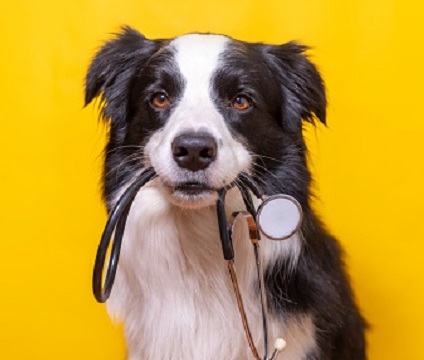
Not sure if your dog is sick?
Get a better idea of your dog’s current health status with our quick quiz.
Why Is My Dog Not Sleeping at Night?
The reasons behind nighttime restlessness can be a complex mix of behavioral, environmental, and medical factors. Pinpointing the cause requires careful observation of your dog’s behavior.
Common behavioral and environmental causes include:
- Changes in Routine: Dogs thrive on routine. A recent move, a new pet, or a change in your work schedule can disrupt their internal clock and cause anxiety.
- Lack of Exercise: A dog that hasn’t had enough physical or mental stimulation during the day may have a surplus of energy to burn off at night.
- Anxiety: Separation anxiety, loud noises (like thunderstorms or fireworks), or general stress can make it difficult for a dog to settle down.
- Environmental Discomfort: Is the room too hot or too cold? Is their bed uncomfortable? Small adjustments can make a big difference.
Dog Not Sleeping at Night and Pacing: What Does It Mean?
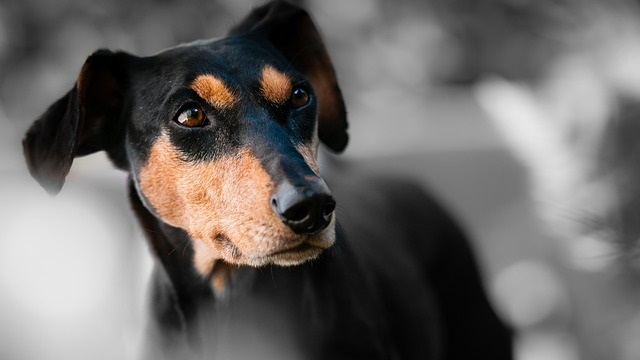
If your dog is not sleeping at night and pacing, it’s often a sign of a deeper issue. Pacing is a repetitive, often frantic, behavior that suggests your dog is trying to relieve discomfort or anxiety. It’s their way of telling you something is wrong when they can’t put it into words.
When you see your dog pacing, look for these accompanying signs:
- Whining or Whimpering: Vocalizing distress or pain.
- Panting: Even in a cool room, panting can be a sign of anxiety or pain.
- Inability to Settle: They may circle their bed multiple times but never lie down, or they might change sleeping spots frequently.
- Restlessness: Constant shifting, twitching, or getting up and down repeatedly.
These behaviors are often red flags for something more significant than a simple need to go outside.
Medical Causes Behind Nighttime Restlessness
While behavioral issues are common, it’s crucial to consider that your dog’s restlessness could be a symptom of an underlying medical condition. Many health problems can disrupt a dog’s sleep cycle.
- Pain or Discomfort: Arthritis, joint pain, or other musculoskeletal issues can make it hard for a dog to find a comfortable position to sleep.
- Cognitive Dysfunction Syndrome (CDS): Often referred to as “doggy dementia,” CDS is a neurodegenerative disease that affects senior dogs. Symptoms often worsen at night, a phenomenon known as “sundowning.” Dogs with CDS may pace, whine, or become disoriented.
- Gastrointestinal Issues: Bloating, acid reflux, or other digestive problems can cause significant discomfort, making it difficult for a dog to rest.
- Urinary Tract Infections (UTIs): The constant urge to urinate can cause a dog to get up frequently, disrupting their sleep.
- Neurological Conditions: Certain conditions can affect a dog’s sleep-wake cycle, leading to confusion and restlessness.
- Deafness or Blindness: As a dog’s senses decline with age, they can become more anxious and disoriented, especially in the dark.
When to Talk to a Vet
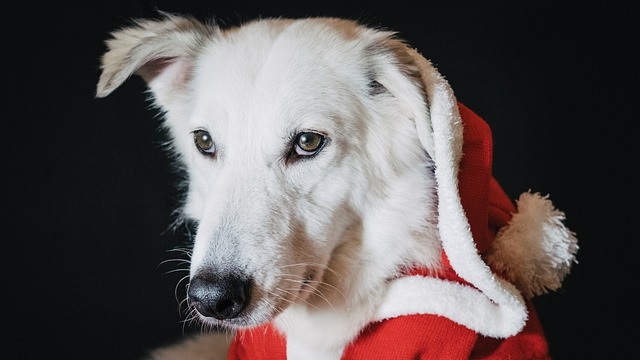
“Sleep disruption can be an early sign of discomfort or illness. Monitoring your dog’s activity at night gives us vital clues we wouldn’t catch during a daytime exam.” — Carolina Domingues, DVM
If your dog’s nighttime restlessness is a new or recurring issue, it’s always best to consult with a professional. Your veterinarian can perform a thorough physical examination and help rule out any serious medical conditions.
When you go to the vet, be prepared to answer questions about:
- When the behavior started
- How often it happens
- Whether you’ve noticed any other changes (e.g., appetite, drinking habits, mood)
- Any recent changes to your dog’s environment or routine
Why Tracking Nighttime Activity Matters
You can’t be awake all night to watch your dog, but their sleep patterns hold a wealth of information. The key is to look for trends over time, not just single events. A single restless night might be an anomaly, but a gradual increase in the number of times your dog gets up, or the duration of their restlessness, can point to a developing health issue that a daytime checkup might miss.
For example, a slight increase in pacing might be a subtle sign of arthritis, a condition that worsens slowly. By the time the pain is severe enough for your dog to show obvious signs of limping, the condition may be advanced. Tracking this behavior proactively allows you and your vet to intervene much earlier.
How Maven Helps
This is where a tool like Maven can be a game-changer. Our pet health tracker uses smart technology to monitor your dog’s activity levels 24/7, even while you’re asleep. Maven’s dog health tracker helps you see patterns and trends in their nighttime activity that are invisible to the naked eye.
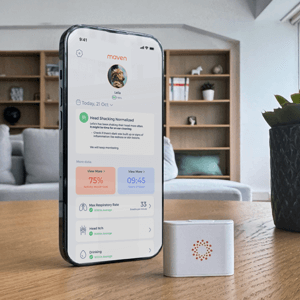
Maven Pet
Health Monitor
#1 Vet-recommended pet monitor! Tracks activity, rest, respiratory rate, water intake, scratching and other health indicators 24/7
Maven’s features provide invaluable data, including:
- Overnight Activity Reports: Get a clear breakdown of when your dog was active, how long they were up, and how well they slept.
- Health and Behavior Tracking: Log your dog’s symptoms and habits, so you can easily share a comprehensive record with your veterinarian.
- Proactive Alerts: Maven can flag unusual spikes in activity that might suggest a brewing problem, helping you answer the question “is my dog sick?” with more confidence.
By using Maven’s pet health app, you move from guessing what’s wrong to having concrete data that can help your vet make a more accurate diagnosis. It’s the peace of mind that comes from knowing you’re not missing a thing.
Takeaways Recap
- Persistent nighttime restlessness is not normal and should be taken seriously.
- Pacing, whining, and a general inability to settle are key signs that your dog is uncomfortable or anxious.
- Early intervention is key. Many medical conditions, such as arthritis or cognitive decline, can be managed more effectively when caught early.
Data is your best ally. Using a dog health tracker allows you to spot subtle changes in your dog’s behavior that you would otherwise miss, helping you take a proactive approach to their well-being.
Maven Pet focuses on improving the quality of life of our pets with technology, using artificial intelligence (AI) to enable proactive pet care. By accurately collecting and monitoring pet data 24/7 and flagging any irregularities, Maven Pet empowers pet parents and veterinarians to stay ahead of potential health issues, ensuring the well-being and longevity of our beloved companions.

